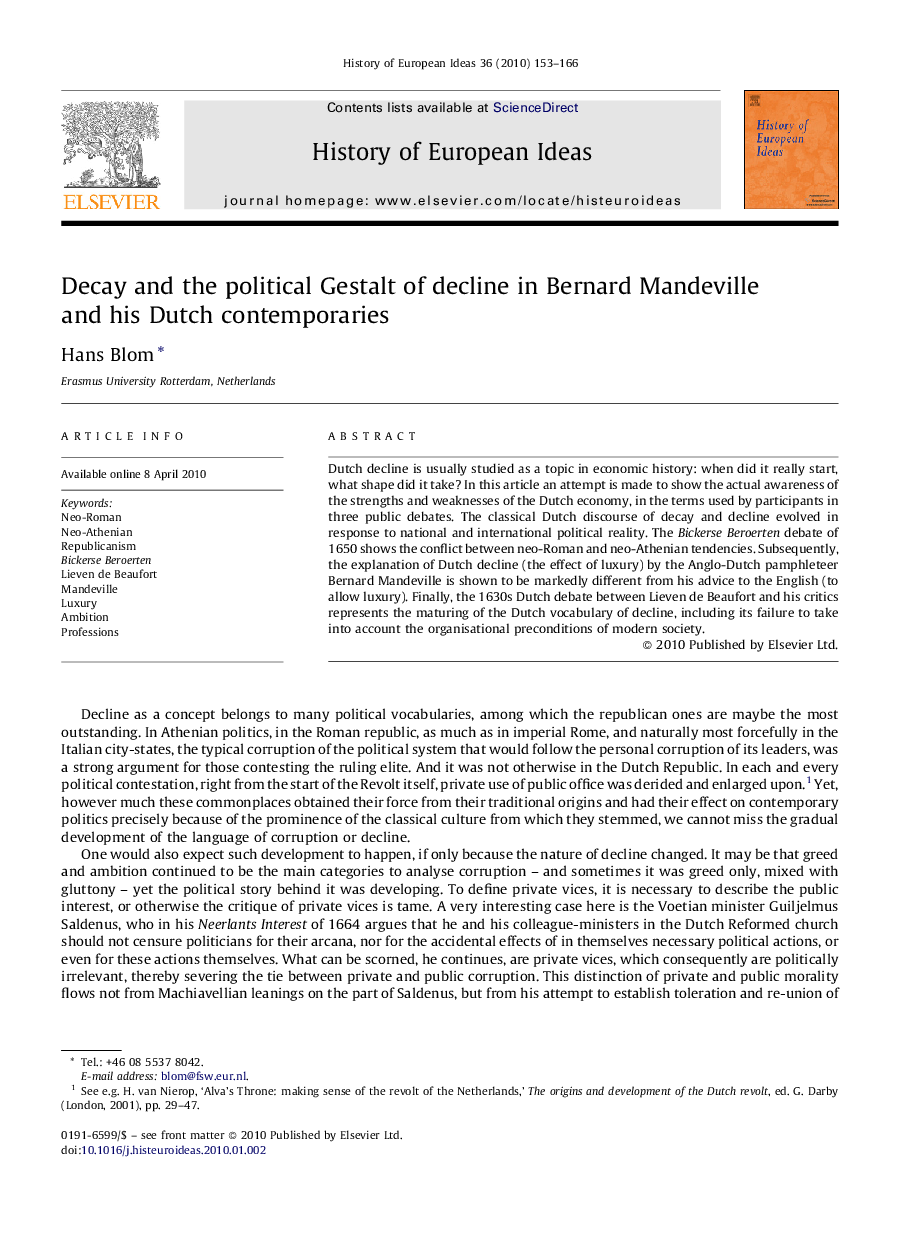| Article ID | Journal | Published Year | Pages | File Type |
|---|---|---|---|---|
| 1159059 | History of European Ideas | 2010 | 14 Pages |
Abstract
Dutch decline is usually studied as a topic in economic history: when did it really start, what shape did it take? In this article an attempt is made to show the actual awareness of the strengths and weaknesses of the Dutch economy, in the terms used by participants in three public debates. The classical Dutch discourse of decay and decline evolved in response to national and international political reality. The Bickerse Beroerten debate of 1650 shows the conflict between neo-Roman and neo-Athenian tendencies. Subsequently, the explanation of Dutch decline (the effect of luxury) by the Anglo-Dutch pamphleteer Bernard Mandeville is shown to be markedly different from his advice to the English (to allow luxury). Finally, the 1630s Dutch debate between Lieven de Beaufort and his critics represents the maturing of the Dutch vocabulary of decline, including its failure to take into account the organisational preconditions of modern society.
Related Topics
Social Sciences and Humanities
Arts and Humanities
History
Authors
Hans Blom,
